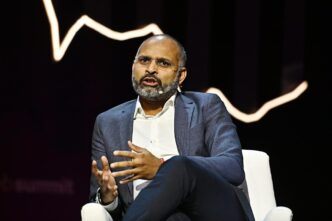For years, the rule of thumb in building a startup was simple: location, location, location. Founders were told that success depended on being in the right place—usually a major city like San Francisco, New York, or London. But that rulebook has changed. Today, location is no longer a limit—it’s just another variable. Globalization, remote work, and the rise of digital tools have made it possible for global startups to launch, grow, and scale without ever stepping foot in traditional business hubs. And the best founders are embracing that shift, not resisting it.
My own company, Augment, proves the point. We’re headquartered in France, yet only 1.41% of our customers are based here. Because when your product solves a real problem, your market isn’t a single city or country—it’s the world.
Founders Without Borders
A new generation of entrepreneurs is emerging. These founders aren’t building for the place they live. They’re building for the places that need what they’ve created. Whether you’re designing in Nairobi and selling in New York, or coding in Paris and scaling across Southeast Asia, the world is now your launchpad.
It’s not about ignoring local insight. It’s about refusing to be boxed in by it. The best products today are designed to serve diverse needs. And if you can meet those needs better than anyone else, it shouldn’t matter where your HQ sits.
Does that mean the era of iconic startup cities is over? Not quite.
Major hubs like NYC, London, and SF still offer undeniable benefits—access to capital, talent, and credibility. But those perks often come at a high cost: expensive talent, costly offices, and increased competition. With AI and lean tools making it easier to work smart, the need for a swanky office in a top-tier city just isn’t what it used to be.
Think Global, Stay Agile
Operating globally isn’t just a mindset—it’s a strategic advantage. As the a16z “Default Global” report explains, the most resilient startups of the future will thrive across markets, not depend on just one. In a world of economic shocks, trade wars, and geopolitical tension, relying on a single geography is risky.
Diversifying your market reach gives your startup breathing room. You’re not held hostage by one country’s regulation or one currency’s inflation. And better yet, global exposure often leads to better products. Serving different markets forces you to think differently, adapt faster, and build solutions that resonate more broadly.
Take Just Eat, for example. It started in Denmark but truly scaled after moving to the U.K. It didn’t just expand—it reinvented itself to fit the opportunity. That’s what going global from day one really means.
The Borderless Talent Advantage
The same logic applies to hiring. Once, founders felt they had to move to tech hubs to find top talent. Not anymore. Remote work and global hiring platforms have made it clear: talent lives everywhere.
Credentials? Less relevant. Zip code? Irrelevant. Today, the best person for the job might be in Lagos, Lisbon, or Lahore—and they can join your team without ever stepping on a plane.
That’s why smart founders now think global not only for customers, but for talent, too.
So here’s the real question: Why limit yourself?
Why settle for local when the internet lets you reach the global stage? Why hesitate to enter a market just because it’s “far away”? If you’re building something valuable, you should go where the demand is—and sometimes, that means skipping your own backyard.
The truth is, the internet removed borders. It’s time founders stopped putting them back.
Whether you’re starting up or scaling, treating the world as your address can unlock growth you never imagined. Global startups aren’t a trend—they’re the future. And the sooner we embrace that, the better we’ll all build.













